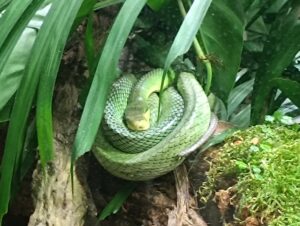Effective Ways to Keep Snakes Away from Your Home: A Complete Guide
Keeping snakes away from your home is a priority for many homeowners, especially those in snake-prone areas. While snakes play an essential role in the ecosystem by controlling pest populations, having them near your house can be unsettling and, in some cases, dangerous. Snakes are drawn to specific conditions, often unknowingly provided by homeowners. By understanding what attracts snakes and implementing effective preventive measures, you can make your home a less appealing place for them. This guide covers practical, safe, and environmentally friendly methods to help keep your property snake-free.
Understand What Attracts Snakes
Snakes are primarily drawn to environments that provide food, shelter, and water. Common attractors include:
- Rodents: Snakes feed on small mammals, birds, and even insects. A rodent infestation will likely draw snakes in.
- Warm, Dark, and Damp Places: Snakes seek these spots for shelter and are often found in basements, under debris, or in compost piles.
- Water Sources: Standing water can attract snakes, especially if it supports other wildlife they prey on.
- Overgrown Vegetation: Bushes, tall grass, and thick vegetation make it easy for snakes to hide and hunt.
Seal Entry Points
Inspect your home and seal any cracks, holes, or openings where snakes could enter. Common entry points include gaps under doors, vents, and spaces around windows. Use weather stripping for doors and caulk for smaller gaps. If you live in an area prone to snake visits, consider adding a screen or mesh to vents and drain pipes.
Maintain Your Yard
- Keep Grass Short: Snakes dislike open, exposed areas. By mowing your lawn regularly, you create an environment that makes snakes feel unsafe.
- Remove Clutter: Piles of wood, rocks, or debris provide perfect hiding spots. Keep firewood elevated and away from your home, and clear away any clutter.
- Trim Bushes and Shrubs: Ensure shrubs are kept trimmed and avoid dense ground cover near your home, as it provides hiding spots for snakes.
Control Rodent Populations
Snakes often follow the food supply, so a home with rodents will attract snakes. Use traps to control rodents, and keep your home clean, particularly in areas where food is stored or prepared. Store food in airtight containers, and clean up crumbs or food remnants immediately to discourage rodents.
Remove Water Sources
- If you have outdoor water features like ponds, consider placing a mesh cover over them, as these can attract both snakes and their prey.
- Fix leaky faucets and remove any standing water around your home.
- Keep birdbaths at a distance from your house, as they can attract small birds and rodents that snakes may prey on.
Install Snake Fencing
A physical barrier, such as a snake-proof fence, is highly effective. Use fine mesh (no larger than a quarter-inch) and ensure it’s buried several inches below the ground to prevent snakes from slithering underneath. The fence should be tilted outward at a 30-degree angle to prevent climbing.
Use Natural Repellents
- Sulfur Powder: Sprinkle powdered sulfur around the perimeter of your property. It has a strong smell that is unpleasant to snakes.
- Cinnamon and Clove Oil: These oils are thought to be irritants to snakes. Mix them with water and spray the mixture around doors, windows, and potential entry points.
- Ammonia: Fill containers with ammonia and place them around your yard. Snakes dislike the smell, and it can act as a mild deterrent.
Consider Predator Animals
Certain animals, like cats, dogs, chickens, and even pigs, are natural snake deterrents. If you live in an area with a lot of snakes, keeping these animals can reduce snake presence. Chickens, for instance, actively hunt smaller snakes, and even larger snakes may avoid areas with animals that could pose a threat.
Use Snake Traps (With Caution)
Sticky or glue traps can catch snakes but may require expertise to use safely. These traps are generally best used by professionals. Avoid handling trapped snakes without proper knowledge, as some species can be dangerous. If you catch a snake, call local wildlife control to assist with its removal.
Chemical Repellents
Commercial snake repellents can be effective but are best used around the perimeter of your yard and not inside your home due to toxicity. Some of these contain naphthalene (a primary ingredient in mothballs) and sulfur, which snakes find repulsive. Apply as directed, and avoid areas where pets or children play.
Consider Calling Professionals
If snake sightings around your property are frequent, a pest control professional can assess and suggest solutions tailored to your environment. Professionals can safely relocate snakes and may suggest additional measures, such as advanced fencing or environmental adjustments.
Educate Yourself and Family Members
Knowing which types of snakes are local to your area helps with identifying potential threats. Not all snakes are venomous, and many are beneficial to ecosystems. Teach children to recognize and avoid snakes and ensure they know to call for help if they spot one.
Additional Tips
- Outdoor Lighting: Snakes are attracted to areas where prey gathers, and outdoor lights attract insects, which in turn attract rodents. Consider using yellow LED lights, which are less attractive to insects.
- Check Potential Hiding Spots Regularly: Regularly inspect areas such as garages, basements, and attics, as well as outdoor structures like sheds and barns.

